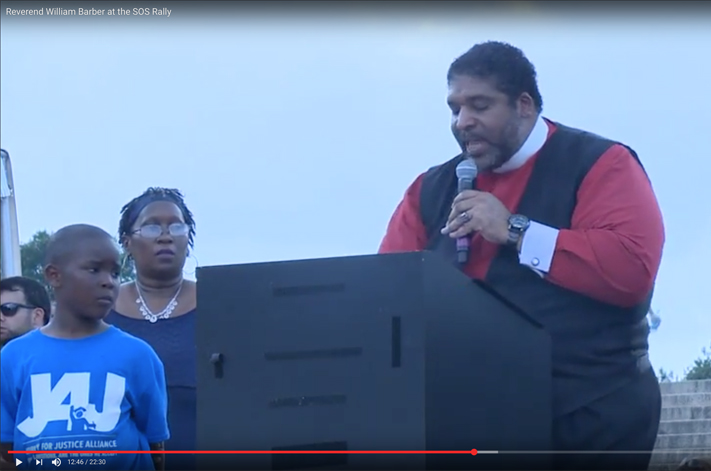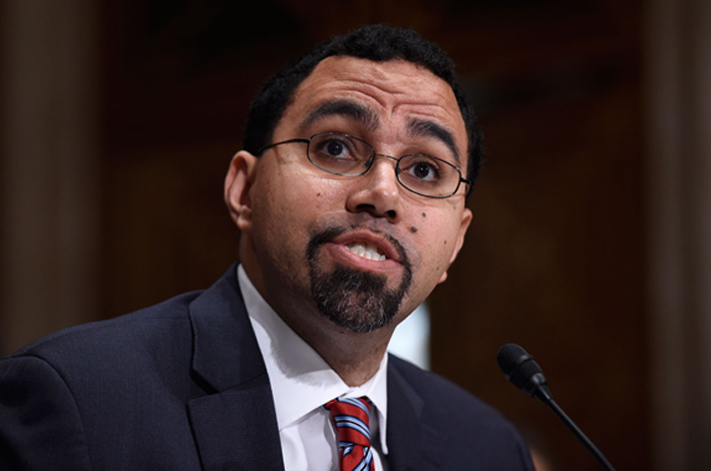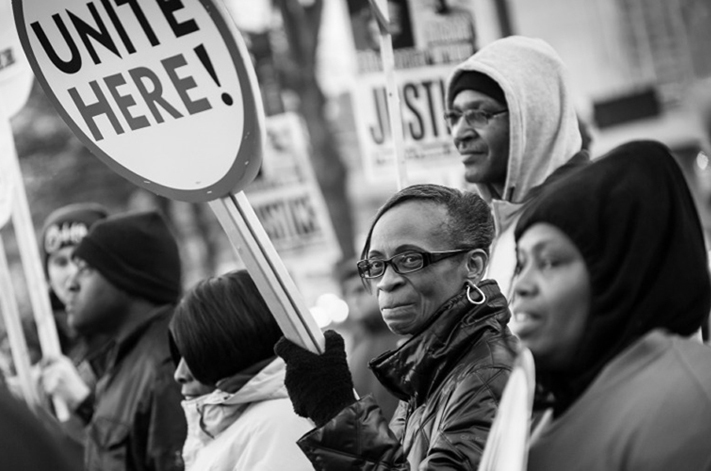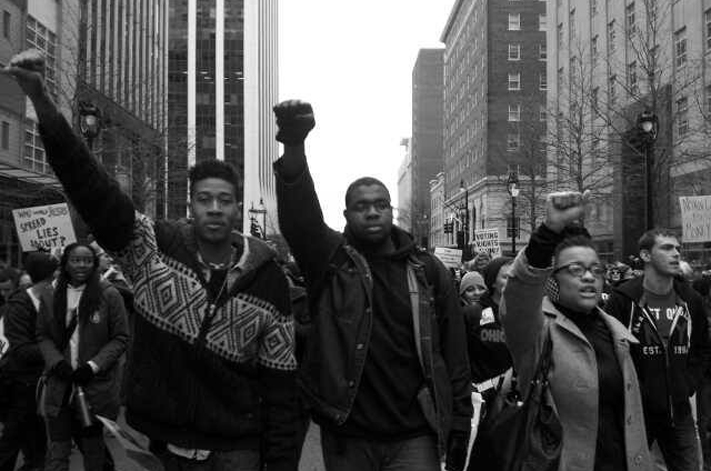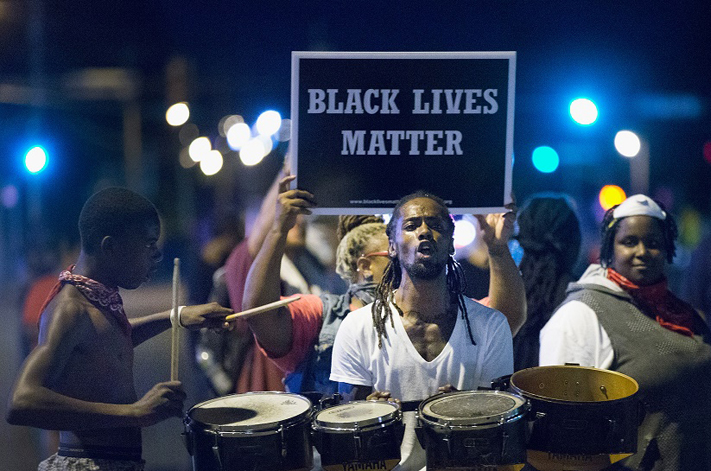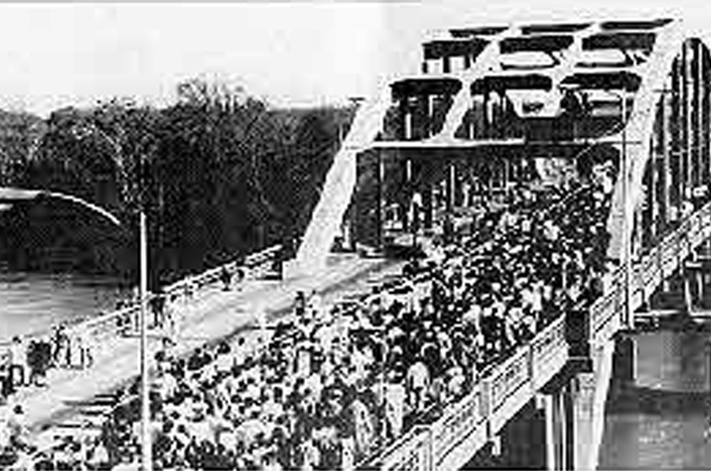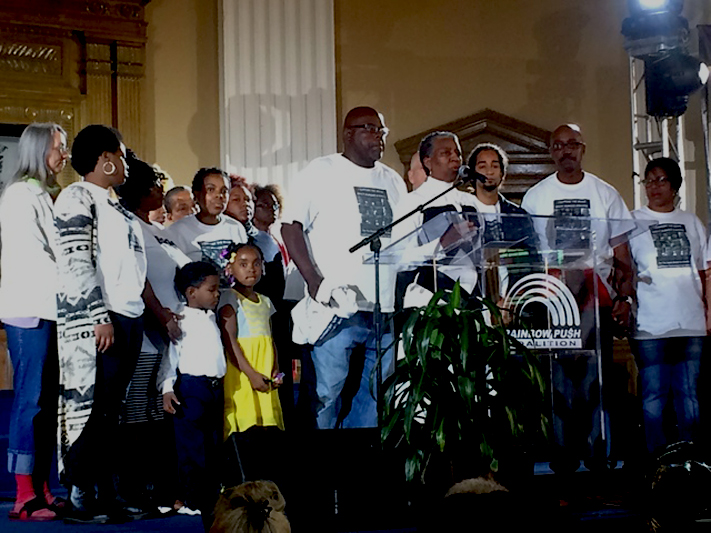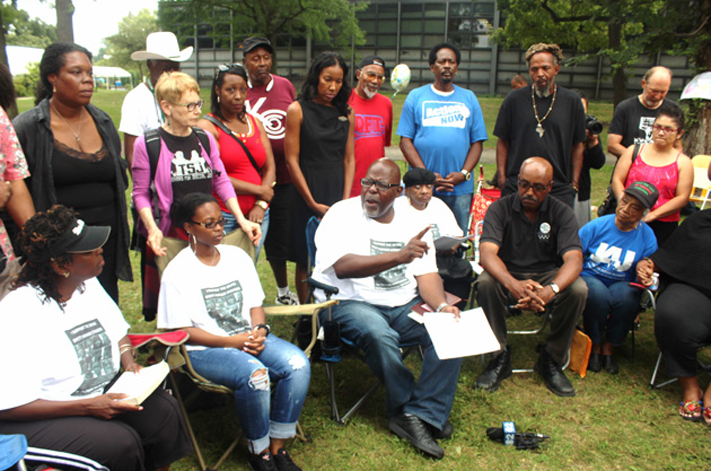Project Description

The March on Washington was supposed to be about justice and economic equality for black Americans. The second part of that mission is still far from accomplished.
If you frequently ask yourself what happened to President Johnson’s and indeed the nation’s War on Poverty, then you might be interested in the Economic Policy Institute Action …
The Unfinished March.
On August 28, 1963, more than 250,000 people participated in the March on Washington for Jobs and Freedom.
They marched for equal access to public accommodations, voting rights, and the end of racial discrimination in employment. While achieving the full measure of these rights remains a work-in-progress, legislative and policy commitments to these goals were secured. But the marchers also demanded:
- decent housing
- adequate and integrated education
- jobs for all
- a minimum wage worth more than $13 an hour today
Fifty years later, on all socioeconomic measures, African Americans still lag whites by wide margins. At the same time, economic opportunities are shrinking for working people of all races. Until we achieve all of the march’s goals, there is little hope for reducing black-white socioeconomic disparities and providing genuine opportunity for economic advancement to all Americans.
In the coming months, at their website of the Economic Policy Institute will publish essays outlining what we need to do as a nation to fully achieve each of the goals of the March on Washington for Jobs and Freedom.
“We have no future in a society in which 6 million black and white people are unemployed and millions more live in poverty. Nor is the goal of our civil rights revolution merely the passage of civil rights legislation. Yes, we want all public accommodations open to all citizens, but those accommodations will mean little to those who cannot afford to use them. Yes, we want a Fair Employment Practice Act, but what good will it do if profit-geared automation destroys the jobs of millions of workers black and white?” ~ A. Philip Randolph, 1963, director of the March on Washington for Jobs and Freedom, and president of the Negro American Labor Council
Home Page Featured Image – Associated Press; It’s now 50 years since the March on Washington for Jobs and Freedom, yet many troubling economic inequalities still persist.

